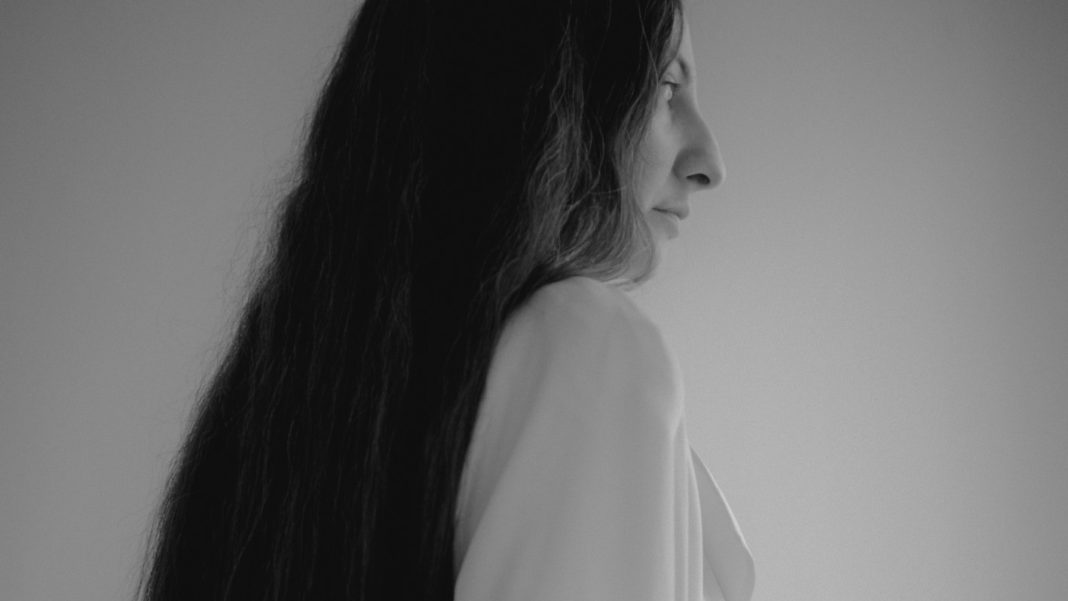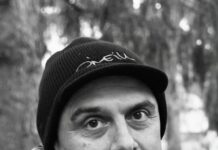
Photo: Zeynep Özkanca (Ece Özel)
İstanbul has a rich musical history, but also a vibrant contemporary scene. It’s a city in which old and new sounds, different scenes and international influences blend in unique ways. Ece Özel is one of the DJs who best represent this attitude in their sets. The Müstesna co-founder and arkaoda resident has made a name for herself as a versatile DJ with a deep knowledge of dance music’s outer fringes. Having just contributed vocals to a track by Elena Colombi for a compilation released on the Italian producer’s Osàre! Editions, Özel steps up to decks for a 90 minute mix for our Groove podcast that has only one goal: to make you dance. What reads simple enough on paper comes in the shape of a multi-faceted set that moves effortlessly between different eras, genres and cultural idioms.
First off, how have the last two years been for you?
There were ups and downs but overall it’s been good. I had a lot of different things to focus on and work with. I’ve been working as a fashion stylist for 15 years, but before the pandemic I was a bit lazy on that side of my life for some years. Now I am fully back to work. I also started painting again, which was my major at the art academy. I even sold quite a few paintings! That was really a big motivation. Also my take on act of DJing completely changed. I had a lot of time thinking about it. I realized I nearly always felt anxious before or during I was playing. I came to terms with that over the years and now everything feels natural.
You’ve grown up on punk music. What turned you on to electronic music and how did you end up picking up DJing?
Music has always been a big part of my life. I always discovered my own music even as a kid. I guess my father being a bar owner and a jazz head had a big effect on me in that sense. I started working as an artist host at a big club in İstanbul in my early 20s. That got me into seeking out and listening to electronic music. Digging for more electronic and club-related music made me understand the connections between all the music I had been into over the years. I still find this very poetic and it’s the main reason for how I play. But DJing came way after that. I can say it was almost random. I was studying painting at the art academy and that was very important. But the academic approach really smothered me and I slowly drifted away from school and sadly also from painting. I left school and started working as an assistant to a fashion stylist. One day a friend who was running a club in İstanbul asked me if I wanted to play one night. I guess just because I wouldn’t stop talking about music! Until that day I had never even imagined being a DJ. I had no idea how to play, I had never touched a CDJ or a turntable before in my life! Another friend suggested the most impractical DJ set-up possible: a laptop, Ableton and an UC 33 controller. I’ve never touched that setup again. That’s how it started!
Minimüzikhol, İstanbul’s oldest club, seems to have been very formative for you as a DJ. How would you describe your relationship with that club?
It’s kind of sad to say Minimüzikhol is the oldest club left in Istanbul because it reminds me how much has changed in the past 10 years. I was one of the residents of there between the years 2013 and 2016. I learnt a lot. I had the chance to play before many great DJs, made great friends and started my own party series there. It was like home. I played my first European gig thanks to the people I met there. Shout out to my dear Les Belle De Nuit girls and Undomondo! Also it was important to see how a club works, or sometimes how it doesn’t work.
You’re also a resident at arkaoda. How did that come about?
arkaoda is one of the first bars I tried to get in before I was 18 years old, they kicked us out every time. I waited at the door with my ID when I turned 18. I remember being extremely excited when I first played there. It was very important for me. They even let the disco ball rotate while I was playing, which was a big deal back then. My label partner Umut Kahya used to be the musical director of arkaoda for years. During that time I organised my party series Özel Zevkler there. At some point Ozan Maral got involved and we became good friends. Now he is the booker of arkaoda Berlin. Honestly, being a resident came quite naturally. It almost feels like I just declared myself one! (laughs)
The label you run together with Umut Kahya is called Müstesna and was started in 2018. So far, the releases have covered new material by emerging artists, but also an anthology of tracks by Etnik Sentetik made between the years 1995 and 2006. What is the philosophy behind it?
We just want to release music that we think is good. With the exception of the shelTer compilation, so far we’ve only released music from artists based in Turkey. We thought the label could serve an outlet for some of the artists around us and unearth some older music such as Etnik Sentetik and Alper Maral + Mert Topel’s Control Voltage Project. We want to release more music but only digital is just no fun, neither for us nor the artist. There are a few very exciting upcoming projects and we want to put out remix EPs of Fluctuosa and Emre Can Swim releases, which only came out digitally. But being based in Istanbul and not traveling that much makes whole pressing process complicated, especially during these times. So right now we are looking for new ways to make us move faster with physical releases.
You have already mentioned the compilation shelTer. All proceeds went to the Eylül Cansın Trans Guest House. Why was this cause so important to you?
This was Umut’s idea. Turkey has the highest rate of trans murders and suicides in Europe. And this has risen distinctly, especially when we decided to put together the compilation. So we thought we could do something to bring this to people’s attention. We have just started talking about the second one.
You’ve recently collaborated with Elena Colombi on a track for Donne che corrono coi lupi, the latest compilation put together by her for the Osàre! Editions label. You contributed a reading of a parable by the Turkish poet Lale Müldür. How did the collaboration come about and what did your working process look like?
One day Elena sent me an email and asked me if I’d be down to collaborate a track with her for the upcoming compilation she’s been working on. She sent me the poem “The Red Shoes”. First I read it at my friends home studio. I didn’t like the recording and read it like thousand times at home on my computer. It was the first time I did such a thing, so I was quite clueless throughout the whole process. It’s nice sometimes. Elena also asked me if I could read something in Turkish. First I translated some of the verses from the poem she had sent me, but then instantly I thought of Lale Müldür. She is one of the most iconic figures of my youth. Her poems just make no sense in the best way possible. I reached out to her through a friend and she told me do the whatever I want. Then Elena produced that amazing creepy track over my recordings. I really like the parts where Turkish and English clash. The compilation is stunning in its entirety. I am very happy to be part of it next to all the artists involved.
Last year, you started a bi-monthly residency on Georgia’s Mutant Radio. How do you go about programming the shows?
I think Tbilisi’s scene is very strong and I really appreciate Mutant Radio’s approach. One of the bookings that I was really looking forward to before the pandemic was at Horoom. Unfortunately, the last episode of my residency was broadcast this month. It felt like I won’t be able to give the attention it deserves in the upcoming months. But I might start another residency later on, who knows.
What was the idea behind your mix for our Groove podcast?
Straight forward dance! I tried to put together a condensed version of what I would play at a club. The ending only refers to a new beginning.
Last but not least: What are your plans for the future?
I am pretty excited about the upcoming Müstesna releases. One album is coming from the amazing young artist Eylül Deniz and there will be an Etnik Sentetik remix project. Figuring out how to do these on vinyl is the big plan for now. Maybe an exhibition. Finally playing all the cancelled gigs and festivals this summer. Getting my house painted.
Stream: Ece Özel – Groove Podcast 326
01. White Noise – Love Without Sound [Island Records]
02. Klaus Schulze & Pete Namlook – Phantom Heart Brother (Part III) [Fax +49-69/450464]
03. Charlotte Simon – User Work Hard [R.I.O. Label]
04. Addison Groove – Bass Trips (Or:la Remix) [GutterFunk]
05. Frak – Capacity Faun [Futurepast]
06. Fakundo – Spechno [Progressive Future]
07. Credit 00 – Fatty Acid [Mechatronica]
08. Mayurashka – Maco Jungle [Planet Trip Records]
09. Olsvangèr – Pkak Del Mar [Rand Muzik Recordings]
10. Pletnev – Accepteble level of ignorance [unreleased]
11. Castro – Finanzamt (Bonus Beats) [Proxima]
12. Metallic Means – Sonder (Moonoton Remix) [Ida Sound]
13. Barney In The Tunnel – Substance [Samo Records]
14. Bound by Endogamy – Digital Shit [unreleased]
15. Nitro Cosmetic – Spike [Power Vacuum]
16. Wosto – Stöckchen [Copyshop]
17. Poima – PIR [Rabitza]
18. Ploy – Rayhana [Deaf Test]
19. Eric Random – Strange Day [LTM]
20. Boris Barksdale – Fadeaway [Phormix]
21. System 01 – Drugs Work [Mannequin]
22. Spekulant – AUE [Progressive Future]
23. Kaval – Wellness [KAVAL]
24. JenZi – Ex-Tasy
25. Kaiju – Sloth [Deep Medi Musik]




